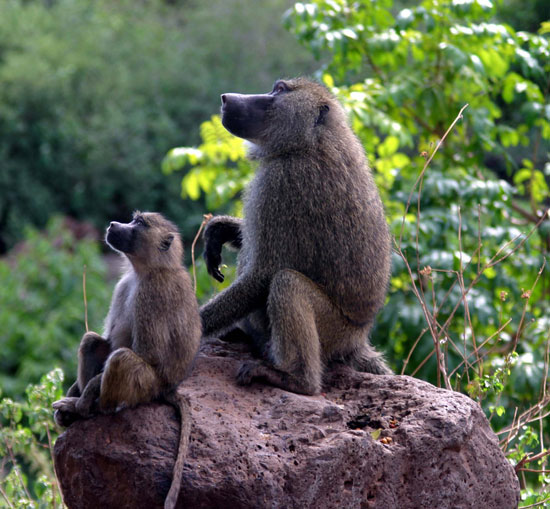Can mammals choose sex for their children?
There is a research project that lasts for decades to find out whether the sex distribution of children in the wild is truly random. Is it really a chance to give birth to a male or female child? And according to a new study published by Stanford University, scientists have determined that it is not a complete random process - but an evolutionary strategy .
It is still unclear why - or how - for a mammal mother to choose to produce females by only one gender. But the statistics show that there is a good reason for mothers to have only one " child " , and many animals also follow this. The main reason is that the mother will choose which gender can create the most descendants.
Researchers have observed thousands of animals at the San Diego Zoo, because in order to be able to determine whether gender distribution affects the number of descendants, they must have the data available. periods of 3 generations. To ensure that the results were not affected by a particular species, they conducted research on many different mammals, from primates, to buffaloes, horses and bears.

Researchers found that mothers with the majority of male or female females will usually have more children than their mothers with a balanced number of females. Mothers with multiple males are the most likely to have many children, while mothers with multiple females will still have a higher number of children than those with uniform female sex ratios. count.
Joseph Garner, the author of this research project, explains that having a "one-sided" child is a big threat but also a great reward; For many animals, only the first male can maintain the race. And if the mother gives birth to a first-born male, it will have many descendants, otherwise there will be very few children, or nothing.
Garner also suggested that environmental factors can also affect the choice of unintentional sperm, and will create a predetermined sex offspring. In a year with lots of food, a cheeky and happy mother, it will have more opportunities to produce a healthy male breed. If the condition is not good, it may be better to have a "daughter" at that time, because their reproductive process actually depends a lot on the health and body condition.
This study has produced many theories based on comparisons in recorded results, but the problem is that it is done only in the zoo, where animals rarely reproduce in the way they do in the world. wild world. Therefore, the results may not be very convincing. However, this is really an interesting study, posing more questions for the scientific community.
- Archaeological discovery of venomous mammals on hind legs
- US test parents choose gender for their children
- Children with more toys will be healthier
- Mammals contain toxins
- New mammals found in South America
- Dolphins and whales cultivate the juveniles for many days
- How to choose safe toys for your baby
- New discovery of the physique of mammals
- Year of birth, affect human development?
- 1/3 of extinct mammals are rediscovered
- 10 exotic mammals
- 7 ways to choose fresh fruit
 Animal 'suffering' after hibernation
Animal 'suffering' after hibernation Why do goats climb well?
Why do goats climb well? Scientists were surprised to see chimpanzees eating turtles
Scientists were surprised to see chimpanzees eating turtles Giant catfish died deadly due to drought in Thailand
Giant catfish died deadly due to drought in Thailand